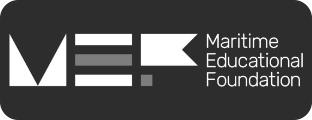Our Learn@Sea courses have been received positively from all walks of seafarer life, and now we are proud to launch two accredited qualifications by Open Awards: Level 3 Award in Maritime Mathematics and Level 3 Award in Vessel Stability.
These A-level equivalent qualifications have been created to support seafarers’ development in order to further their maritime career.
The units contain learning outcomes and assessment criteria that are suitable for level 3 learning within the sector and offers the opportunity to partake in online learning. This enables more flexibility and seafarer reach with each qualification.
Now let’s breakdown both awards and the accredited courses associated with them:
L3 Award in Maritime Mathematics
Firstly, NQF Level 3 Maritime Mathematics is a combination of our award-winning Maths@Sea and Maths@Sea Plus courses. Our e-learning Maths@Sea course caters for seafarers and nautical students, or anyone set to venture into the maritime sector. The course gives our users a skill set that consists of elementary algebra, trigonometry and geometry; an indispensable requirement at nautical college.
Maths@Sea Plus covers more advanced areas of Maths@Sea modules including spherical trigonometry and calculus – building on existing knowledge.
L3 Award in Vessel Stability
NQF Level 3 Vessel Stability is an award that allows you to accredit your studies through our Stability@Sea course. This course – like Maths@Sea and Maths@Sea Plus – is designed to prepare learners to undertake the formal assessment for its respective qualification. The course itself covers all aspects of the buoyancy and stability of vessels presented in bite-size topics. Content is user-friendly, combining technical diagrams, images and self-test exercises to check understanding.
By the end of the course learners will understand the key objectives and be able to describe the effect of a fluid at rest, describe stability terms and definitions, understand vessel stability and flotation and complete basic transverse stability calculations.






